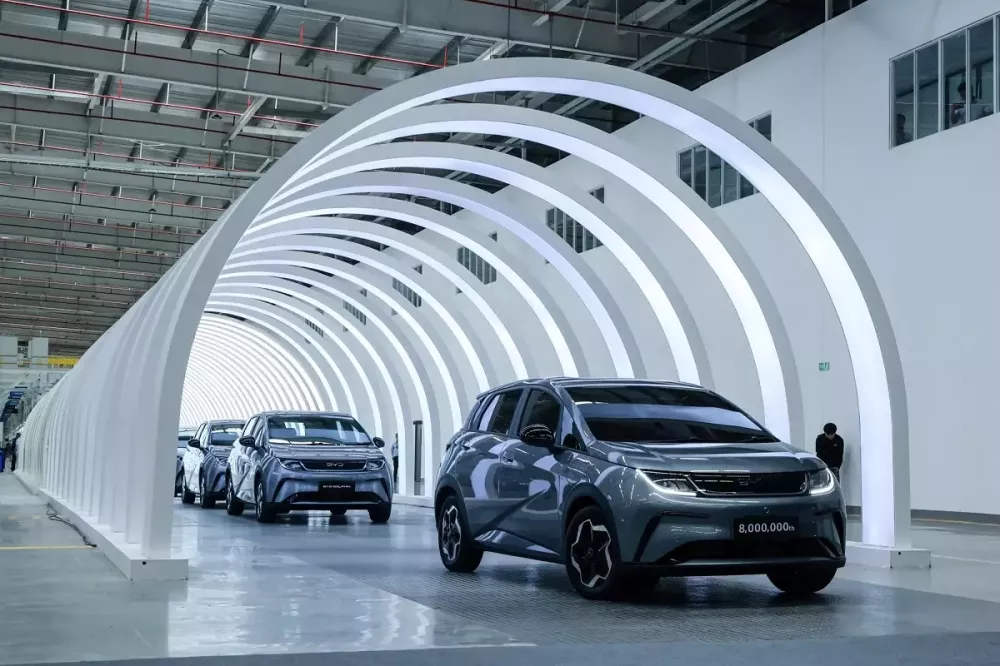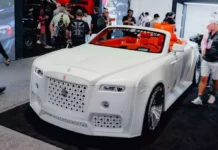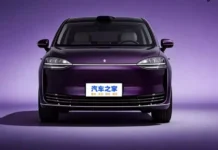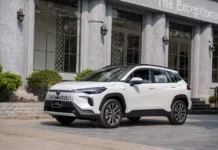China’s leading electric vehicle manufacturer, BYD, has decelerated its production and expansion plans in recent months. According to sources familiar with the matter, BYD has reduced shifts at several of its Chinese factories and delayed the addition of new production lines.
These decisions indicate that the robust sales growth experienced over the past few years, which propelled BYD past Tesla as the world’s largest electric vehicle manufacturer in 2024, may be tapering off. The company is currently facing rising inventory levels, despite deep price cuts in the highly competitive Chinese automotive market.
According to sources, BYD has canceled night shifts and reduced capacity by at least one-third at several plants. These previously unannounced measures are in effect at a minimum of four factories, and some plans for new production line deployments have been halted.
In 2024, BYD sold 4.27 million vehicles, primarily in the Chinese market. The company currently operates a minimum of seven vehicle manufacturing plants in China and aims to increase its sales by nearly 30% to 5.5 million vehicles this year.
Reuters was unable to ascertain the precise scale of the production cuts and expansion halt or their expected duration. One source indicated that these moves aim to reduce costs, while another stated that they were due to missed sales targets.
BYD has not responded to Reuters’ request for comment. Shortly after the Reuters report, BYD’s Hong Kong-listed shares fell nearly 1%.

China’s electric vehicle champion BYD slows production and halts expansion of assembly lines.
According to the China Association of Automobile Manufacturers (CAAM), BYD’s production growth in April and May year-over-year was 13% and 0.2%, respectively, the lowest since February 2024, when production was disrupted by the week-long Chinese New Year holiday.
The data also reveals that BYD accelerated its monthly production in the second quarters of 2023 and 2024. However, this trend reversed this year, with the average production in April and May falling 29% compared to the fourth quarter of 2024.
BYD’s rapid ascent to the top of the global electric vehicle market within a few years can be attributed to its strategy of accelerating production and introducing a range of new models at lower price points. Recently, the company initiated a significant price reduction program, lowering the starting price of its most affordable model to 55,800 yuan (approximately 195 million VND). This initiative triggered a stock sell-off in the automotive sector and sparked a price war among competitors.
A survey by the China Automobile Dealers Association (CADA) in May 2025 found that BYD dealers had enough inventory to last an average of up to 3.21 months, the highest among all brands. In contrast, the industry average in China is 1.38 months.
State media reported last month that a large BYD dealer in Shandong Province had gone bankrupt, leaving at least 20 showrooms vacant or closed.
In response to the rising inventory levels, the China Automobile Dealers Chamber of Commerce, early this month, urged automakers to stop forcing dealers to accept excessive inventory and set reasonable production targets based on sales performance. The chamber stated that the intense price war is affecting the cash flow and profitability of the entire industry.
On June 24, Chinese auto dealers continued to call on automakers to pay discount support funds within 30 days to ease their financial pressure.
The fierce price competition has prompted Chinese regulators to tighten oversight of the automotive industry. This prolonged price war has taken a toll on suppliers, automakers, and dealers alike.
Chinese automakers are now increasingly looking towards overseas markets to compensate for the domestic slowdown. In the first five months of this year, BYD sold 1.76 million vehicles, with exports accounting for about 20% of that figure.














































